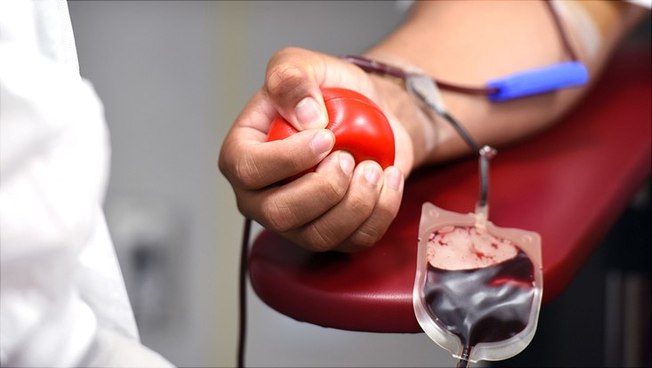3 May 2022
New studySignificant Decrease in Willingness to Donate Blood During Corona Pandemic

Photo: Pixabay
Even before the corona pandemic, there were repeated blood drives to meet urgent needs. The constantly changing demand for blood products and pandemic requirements have continued to impede blood donation centers in carrying out their supply mission. While acute catastrophes normally lead to increased donations, the current study reveals that the desire to donate blood has significantly decreased throughout the pandemic.
One finding is that the pandemic has had less of an impact on the donation willingness of active donors, meaning those who have donated blood at least once in the last 24 months, than on inactive donors who donated once but not in the last 2 years. Researchers compared data from 2020 and 2019. From April 2020 to June 2020, around 1,500 people between 18 and 75 were surveyed 6 times throughout Germany. For the comparison, researchers looked at an April 2019 online study based on the same set of questions.
“Our findings show that active donors were indeed highly aware at the start of the pandemic that they could donate. However, as the pandemic progressed, they clearly felt less in a position to do so,” explains the head of the study Prof. Dr. Michel Clement, professor of marketing management at Universität Hamburg. Inactive donors were significantly less aware and their willingness to donate decreased more strongly.
“During the pandemic, everyone faced the constant danger of getting infected or infecting others and thus they had to strongly limit their public and private lives. This created an unforeseen individual and societal challenge,” explains Besarta Veseli, the study’s lead author. She goes on to say that these kinds of factors could also radically reduce the sense of prosocial responsibility, for example, donating blood. Both active and inactive donors, she explains, felt less morally obligated to donate blood.
“Because a lot of non-life-saving operations were canceled at the beginning of the pandemic, blood donor centers were initially able to meet the lower demand for blood thanks above all to the commitment of active donors,” says Clement. Yet throughout the course of the pandemic, lower blood donation willingness again created a huge societal challenge that, says Clement, once again makes blood drives imperative.
The authors of the study, which was conducted as part of a research collaboration between Universität Hamburg and the German Red Cross Baden-Württemberg-Hessen and Nordost blood donation centers, point out that only ongoing awareness among donors can secure blood reserves in the long term. In particular, loyalty strategies should be established in order to retain new donors and turn them into active ones.
Original publication:
Veseli B, Sandner S, Studte S, Clement M (2022) The impact of COVID-19 on blood donations. PLoS ONE 17(3): e0265171. https://doi.org/10.1371/journal.pone.0265171
